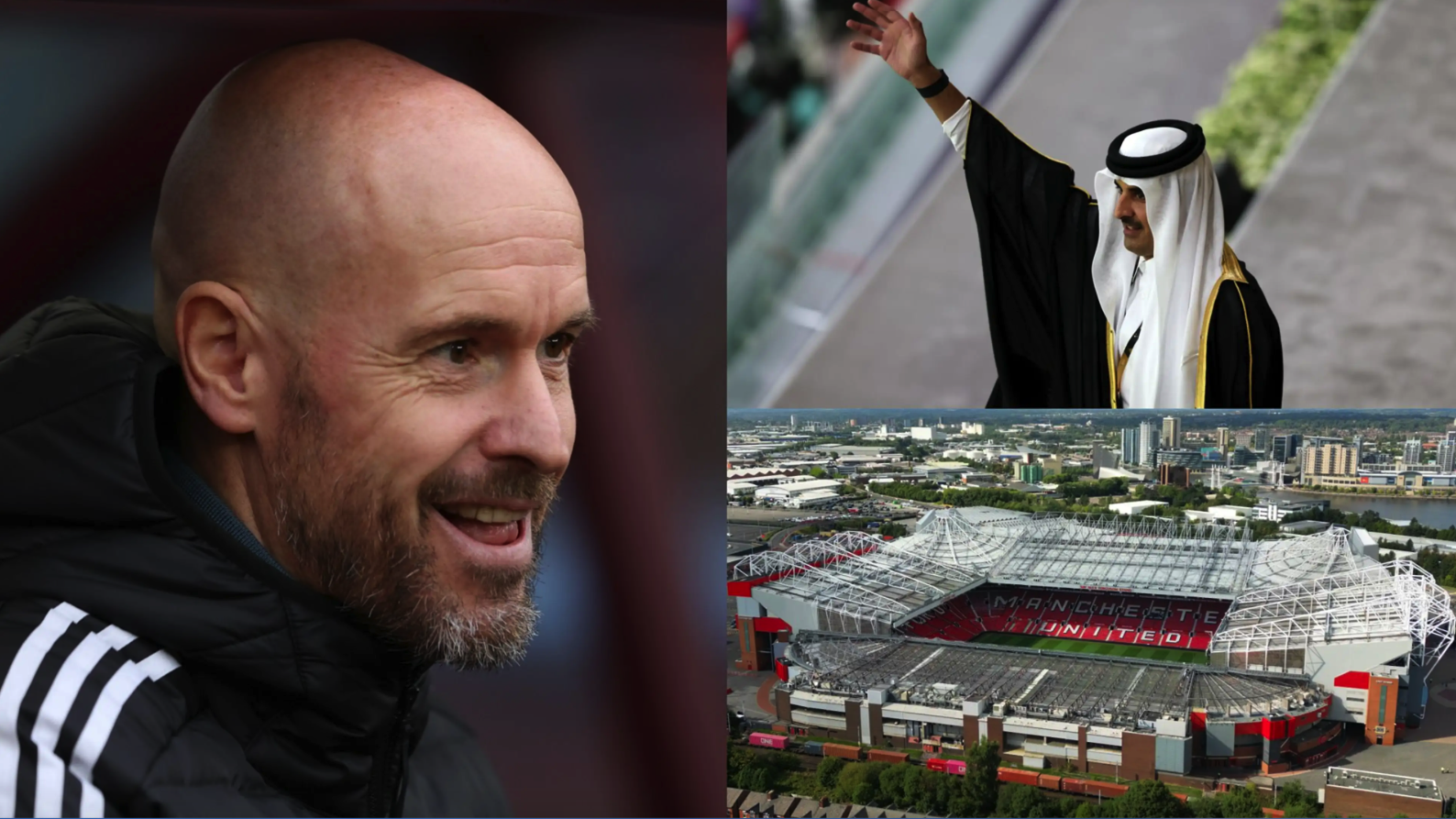Sheikh Jassim never complied with many requests for details of his funding, over the course of his five offers to buy the club outright
Sheikh Jassim bin Hamad Al Thani’s Qatari bid for Manchester United never once provided evidence of the source or proof of its funding, according to new documents on the club’s strategic review process.
It has also emerged that the Glazers gave Sheikh Jassim, the chairman of the Qatar Islamic Bank, the opportunity to buy United in May last year for $5.76 billion (£4.55 billion), excluding the club’s existing debt.
Sheikh Jassim pulled the plug on his bid for a complete takeover of United in October last year with sources close to the Qatari citing his frustration with the process.
Yet it can now be revealed that Sheikh Jassim’s bid failed to provide any details about their funding despite repeated requests from United to do so.

United instead ended up agreeing a deal with Sir Jim Ratcliffe in which the Ineos founder will take a 29 per cent stake in the club subject to regulatory approval next month.
According to a new filing on the US Securities and Exchange Commission (SEC) charting the background behind the protracted 13-month saga, United made numerous requests to the Qatari bid to provide “customary financing commitment letters” but proof of funding never materialized.
The revelations are likely to raise further questions about Sheikh Jassim’s bid.
The son of former Prime Minister Sheikh Hamad bin Jassim bin Jaber Al Thani, one of the richest men in the Gulf state, sources close to Sheikh Jassim always claimed his proposed deal was being funded in a personal capacity.
Those same sources also dismissed suggestions his bid was effectively a state project ultimately funded by the Qatar Investment Authority, the gulf nation’s sovereign wealth fund estimated to have more than £370 billion of assets.
United had solicited interest from over 170 parties, according to the SEC filing, before the club entered into 26 non-disclosure agreements, including with Ratcliffe and Sheikh Jassim, who is referred to as “Bidder A” in the document.
Ten parties submitted initial indications of interest by a Feb 17 last year deadline at which point Sheikh Jassim was offering a deal worth $25 per share that valued the club at around $4.1 billion (£3.2 billion). The SEC filing states that the proposal “did not include customary financing commitment letters”.
Sheikh Jassim submitted an improved bid worth $28 per share the following month only to be told by United that the proposal “did not provide the shareholders with sufficient value”.
By late April, 2023, the Qataris had increased their offer to $28.54 per share. Ratcliffe’s deal at that time remains unchanged but the SEC filing states that he “provided updated financing commitment letters to support” his proposal.
According to the document, representatives from United and Raine, the US brokers running the process, held meetings and teleconferences with Sheikh Jassim’s bid throughout May last year encouraged them to revise their bid and provide proof of funding.
Yet an improved deal worth $30.01 per share submitted on May 16 that valued United at $4.9 billion (£3.9 billion), excluding debt, also failed to provide any evidence of where the money was coming from.
Six days later, the Glazers made a counter offer to Sheikh Jassim by indicating that a “price of $35.25 per ordinary share would be considered”. This would have valued the club at £4.55 billion.
At a board meeting on May 25, it was decided that the club should “continue to seek improved value for shareholders” and “require Bidder A to provide sufficient evidence of its sources of financing that would be required to consummate such a transaction”.
The SEC filing reveals that Sheikh Jassim made another improved bid on June 1 last year worth $34 per Class B share, which holds 10 times the voting rights of the Class A shares, and $24.81 per A share, which was $5.20 less per A share that had been offered two weeks ago. “Again, this revised offer did not provide customary financing commitment letters,” the document states.
At this stage, United also made it clear to the club’s bidders that any proposals had to value A shares at the same price as the B shares. United and its directors were concerned about the threat of legal action from A shareholders who may have felt at risk of being cut out of a deal.
Discussions with the Qatari bid continued between June and August, including more requests to provide proof of funding. At a meeting between the two parties on July 26, the Qataris informed United that they were not prepared to offer a deal that valued the A shares at the same price as the B shares.
Further talks were held up until Oct 6 last year, including discussions in late September when the Qataris told Raine they were “still preparing to submit a revised proposal”.
